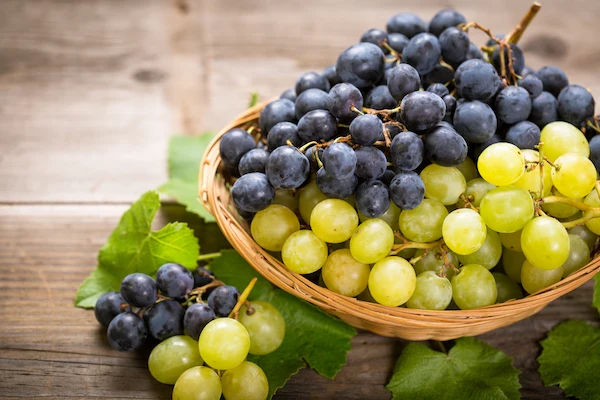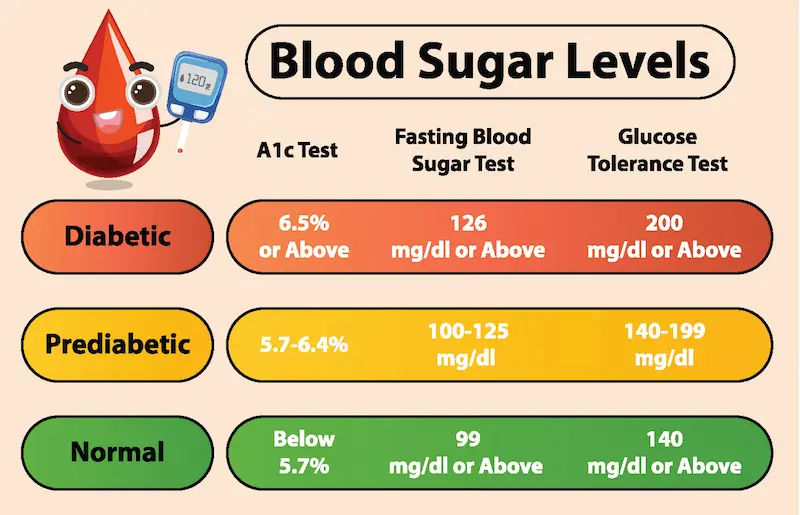The Ultimate Bone Healing Diet What to Eat After a Fracture or Trauma
Discover the ultimate bone healing diet with essential nutrients, food guides, and a sample meal plan to support faster recovery after a fracture or trauma.

Written by Dr. Md Yusuf Shareef
Reviewed by Dr. Shaik Abdul Kalam MD (Physician)
Last updated on 13th Jan, 2026

Introduction
Suffering a fracture or significant trauma is a painful and frustrating experience. While rest and proper medical care from an orthopaedist are non-negotiable, what you put on your plate plays a starring role in how quickly and strongly you recover. Your body is now a construction site, and food provides the essential raw materials—the bricks, mortar, and workers—needed to rebuild your bone. This comprehensive fracture/trauma diet guide is your blueprint. We'll move beyond just "drink milk" and dive into the specific nutrients, powerful foods, and practical meal plans that can significantly influence your healing timeline, reduce complications, and get you back on your feet faster.
Why Nutrition is Your Secret Weapon for Bone Repair?
After a fracture, your body initiates a complex, energy-intensive healing process. It's like a biological construction project that requires a massive influx of specific nutrients. Without the right building blocks, this process can be delayed, leading to a longer recovery, weaker bone formation, or even non-union (where the bone fails to heal). Proper nutrition for trauma recovery does three critical things: it reduces inflammation around the injury site, provides the raw materials for new bone matrix (primarily collagen), and supplies the minerals needed to harden and strengthen that new bone. Think of it as optimising your body's innate healing potential.
The Science of Bone Healing: How Food Fuels the Process
The process occurs in stages: immediately after the break, a haematoma (blood clot) forms. Inflammation kicks in to clean up the debris. Then, soft callus made of collagen and cartilage forms a temporary splint. Finally, a hard callus of bone replaces the soft callus, which is then remodelled into strong, compact bone over months. Each stage has specific nutritional demands. The initial inflammatory stage requires antioxidants and protein. The callus formation stage is incredibly dependent on Vitamin C for collagen and protein for amino acids. The mineralisation stage is hungry for calcium, phosphorus, and vitamin D. A deficiency at any point can slow the entire sequence down.
The Bone-Building Brigade: Essential Nutrients for Fracture Recovery
Protein: The Scaffolding of New Bone
• Bone is about 50% protein by volume. Collagen is the protein framework upon which calcium and other minerals are deposited. After an injury, your body's protein needs can increase by up to 20-30% to repair tissue and prevent muscle loss from immobility. Aim for 1.2-1.5 grams of protein per kilogram of body weight
• Sources: Lean meats, poultry, fish, eggs, dairy products (Greek yoghurt, cottage cheese), legumes (lentils, beans), tofu, and nuts. A unique perspective: Don't just focus on dinner. Include a protein source in every meal and snack (e.g., eggs at breakfast, yoghurt at snack time) to provide a constant supply of amino acids for repair.
Calcium: The Mineral Foundation of Your Skeleton
This is the most abundant mineral in your bones, providing hardness and strength. While important, simply consuming large amounts isn't enough; it needs other nutrients to be used effectively. The recommended intake for healing is 1000-1200 mg per day.
Sources: Dairy products (milk, cheese, yoghurt), fortified plant-based milks, dark leafy greens (kale, broccoli, bok choy), sardines and canned salmon with bones, tofu, and almonds.
Vitamin D: The Key That Unlocks Calcium
• Vitamin D is critical for increasing calcium absorption from your gut. Without sufficient Vitamin D, you might be consuming plenty of calcium, but your body can't use it. Many people are deficient, especially those with limited sun exposure.
• Sources: Sunlight is the best source. Dietary sources include fatty fish (salmon, mackerel), egg yolks, fortified foods (milk, orange juice, cereals). If your levels are low, a doctor may recommend supplements.
Apollo24|7 offers convenient home collection for tests like vitamin D to check your levels and guide supplementation accurately.
Vitamin C: The Collagen Producer
• Vitamin C is a crucial co-factor for the enzymes that synthesise collagen. It also acts as a powerful antioxidant, protecting cells from damage during the inflammatory healing phase. A deficiency can severely impair healing.
• Sources: Citrus fruits (oranges, grapefruit), strawberries, kiwi, bell peppers (especially red and yellow), tomatoes, and broccoli.
Other Crucial Players: Zinc, Magnesium, and Vitamin K
• Zinc: aids in bone tissue formation and protein synthesis. Found in meat, seafood, whole grains, and seeds.
• Iron: is vital for oxygen transport to the healing site. Found in red meat, poultry, lentils, and spinach.
• Vitamin K: directs calcium to the bones and helps bind it to the collagen matrix. Found in leafy green vegetables like spinach, kale, and broccoli.
Your Post-Fracture Food Guide: What to Put on Your Plate
Power Foods for Accelerated Healing
Build your meals around these superstars:
• Dairy: Milk, yoghurt, cheese (for Calcium, Protein, Vitamin D if fortified).
• Leafy Greens: Spinach, kale, collard greens (for Calcium, Vitamin K, Magnesium).
• Fatty Fish: Salmon, mackerel (for Protein, Vitamin D, Omega-3s to reduce inflammation).
• Eggs: (Protein, Vitamin D in the yolk).
• Nuts and Seeds: Almonds, chia seeds (Calcium, Magnesium, Protein).
• Citrus Fruits & Berries: (Vitamin C and antioxidants).
• Lentils and Beans: (Protein, Zinc, Magnesium).
Consult a Specialist for the best advice
Foods and Habits to Limit or Avoid
• Alcohol: Impairs bone-forming cells (osteoblasts) and disrupts calcium balance.
• Excessive Salt & Caffeine: Can increase calcium excretion through urine.
• High-Sugar Foods: Promote inflammation and offer no nutritional value for healing.
• Smoking: This is one of the biggest controllable risk factors for delayed healing. It constricts blood vessels, severely reducing the flow of oxygen and nutrients to the fracture site. If you need support to quit, consulting a doctor can provide a structured plan.
Putting It All Together: A Sample 1-Day Meal Plan for Bone Health
This plan is a template. Adjust portions based on your calorie needs and preferences.
• Breakfast: 2-egg omelette with spinach and cheese, served with a glass of fortified milk or orange juice.
• Mid-Morning Snack: A bowl of Greek yoghurt with strawberries and a sprinkle of almonds.
• Lunch: Grilled salmon salad with mixed leafy greens, bell peppers, chickpeas, and a lemon-tahini dressing.
• Afternoon Snack: A handful of nuts and an apple.
• Dinner: Chicken and vegetable stir-fry with broccoli, bok choy, and tofu served over brown rice.
• Hydration: Water, herbal tea, or infused water throughout the day.
Beyond Food: Other Critical Factors for Optimal Recovery
The Importance of Hydration
Water is essential for transporting nutrients to the injury site and removing waste products. Dehydration can hinder every metabolic process, including healing. Aim for 8-10 glasses of fluid daily.
Why You Shouldn't Smoke and Limit Alcohol?
As mentioned, these are major inhibitors of healing. The best diet for fracture recovery can be undermined by smoking and excessive alcohol consumption. Focus on giving your body the cleanest possible environment to do its work.
Quick Takeaways: Key Points to Remember
• Protein & Calcium are the building blocks, but Vitamin D is essential to use the calcium.
• Vitamin C is non-negotiable for making collagen.
• Hydrate well to transport all these nutrients.
• Limit alcohol, salt, sugar, and absolutely avoid smoking.
• Eat a colourful, balanced diet focused on whole foods.
• Follow your doctor's orders regarding weight-bearing and physiotherapy.
• If you have underlying conditions like osteoporosis or diabetes that may affect healing, consult a doctor online with Apollo24|7 for a personalised nutrition and management plan.
Conclusion
Recovering from a bone fracture is a test of patience, but you have more control than you might think. By embracing a targeted fracture/trauma diet, you actively fuel your body's remarkable ability to heal itself. This isn't about drastic changes but mindful choices—prioritising protein-packed meals, calcium-rich foods, and the vitamins that make it all work. Remember, this nutritional strategy works in synergy with the medical care provided by your orthopaedic specialist. Stay hydrated, avoid harmful habits, and be consistent. If you have specific concerns about nutrient deficiencies or underlying health issues that could impact your recovery, don't hesitate to seek professional guidance. Here's to a strong and swift recovery!
Consult a Specialist for the best advice
Consult a Specialist for the best advice

Dr Suseela
General Physician
5 Years • MBBS
Bengaluru
Apollo Medical Center, Marathahalli, Bengaluru

Dr. Mainak Baksi
General Practitioner
13 Years • MBBS , MD (MPH)
Howrah
Mainak Baksi Clinic, Howrah
(50+ Patients)

Dr. Rajib Ghose
General Physician/ Internal Medicine Specialist
25 Years • MBBS
East Midnapore
VIVEKANANDA SEBA SADAN, East Midnapore

Dr. Ramyajit Lahiri
General Physician/ Internal Medicine Specialist
7 Years • MBBS,MD
New Town
AESTHETICAROOTS, New Town

Dr. Suvayan Sadhu
General Practitioner
2 Years • MBBS
Kolkata
GRD POLYCLINIC, Kolkata
Consult a Specialist for the best advice

Dr Suseela
General Physician
5 Years • MBBS
Bengaluru
Apollo Medical Center, Marathahalli, Bengaluru

Dr. Mainak Baksi
General Practitioner
13 Years • MBBS , MD (MPH)
Howrah
Mainak Baksi Clinic, Howrah
(50+ Patients)

Dr. Rajib Ghose
General Physician/ Internal Medicine Specialist
25 Years • MBBS
East Midnapore
VIVEKANANDA SEBA SADAN, East Midnapore

Dr. Ramyajit Lahiri
General Physician/ Internal Medicine Specialist
7 Years • MBBS,MD
New Town
AESTHETICAROOTS, New Town

Dr. Suvayan Sadhu
General Practitioner
2 Years • MBBS
Kolkata
GRD POLYCLINIC, Kolkata
More articles from General Medical Consultation
Frequently Asked Questions
1. What are the best foods to heal broken bones faster?
Focus on a combination of protein-rich foods (eggs, fish, Greek yoghurt), calcium sources (dairy, leafy greens, fortified foods), and Vitamin C providers (citrus, berries, bell peppers) to cover all aspects of the bone repair process.
2. Should I take calcium supplements after a fracture?
It's best to get nutrients from food first. However, if you have dietary restrictions or a known deficiency, supplements may be necessary. Consult a doctor before starting any new supplement regimen to determine the right type and dosage for you.
3. How much protein do I need after a bone injury?
Aim for 1.2 to 1.5 grams of protein per kilogram of your body weight. For example, a 68 kg (150 lb) person would need roughly 80-100 grams of protein daily.
4. Are there any foods I should avoid with a broken bone?
Limit alcohol, excessive caffeine, very salty foods, and sugary snacks and drinks. These can interfere with calcium absorption, increase inflammation, or provide empty calories that displace healthier options.
5. Why is vitamin D important for a fracture trauma diet?
Vitamin D is critical because it acts like a key, allowing your body to absorb the calcium you consume from your diet. Without enough Vitamin D, much of the calcium you eat may pass through your body unused.




.webp)